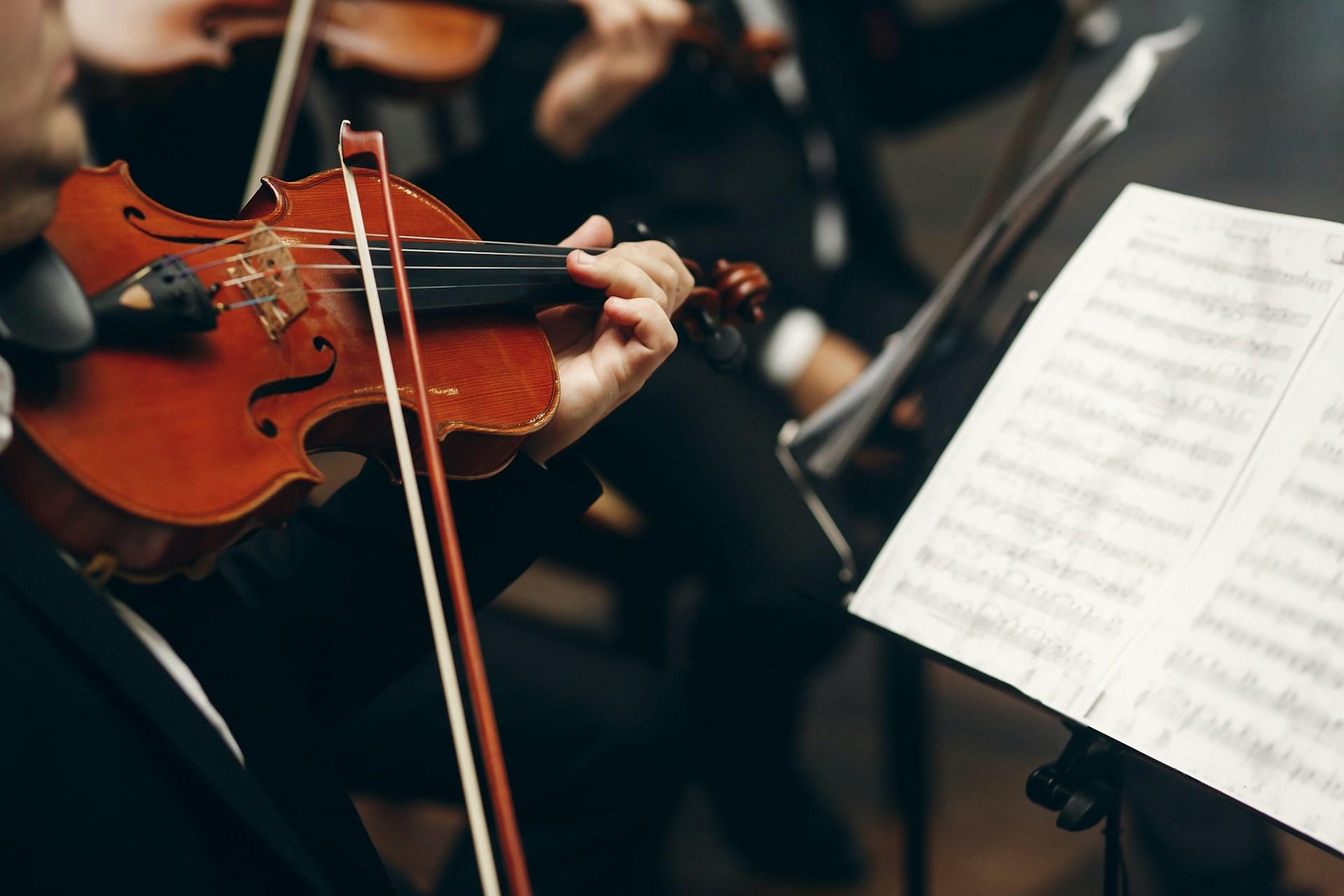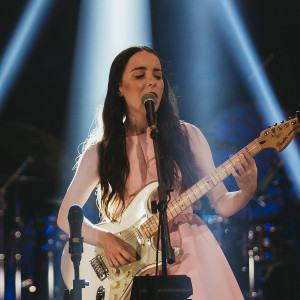Classical music is one of the rare musical genres established hundreds of years ago and is still commonly recognized today. If you think the catalog of pop singers is massive, then you should try looking up every influential classical musician; the list is incomprehensible!
While many classical music artists lived long ago, their music continues to be regarded as untouchable, forever to remain in the top positions. After all, these early classical musicians set the foundation for every musician who followed.
They changed musical history forever, and much of the world of contemporary music as we know it wouldn’t exist without them, classical or otherwise.

Hildegard von Bingen (1098-1179)
One of the earliest examples we have of what can be considered Classical music is the poems set to music by Abbess Bingen. Most music from this time and before are credited to “Anon” since the composer’s name was lost to time, so Bingen’s music is unique in that we know the author. Furthermore, history tends to be rather unkind to women, so having artistic works credited to a woman is an impressive feat in and of itself.
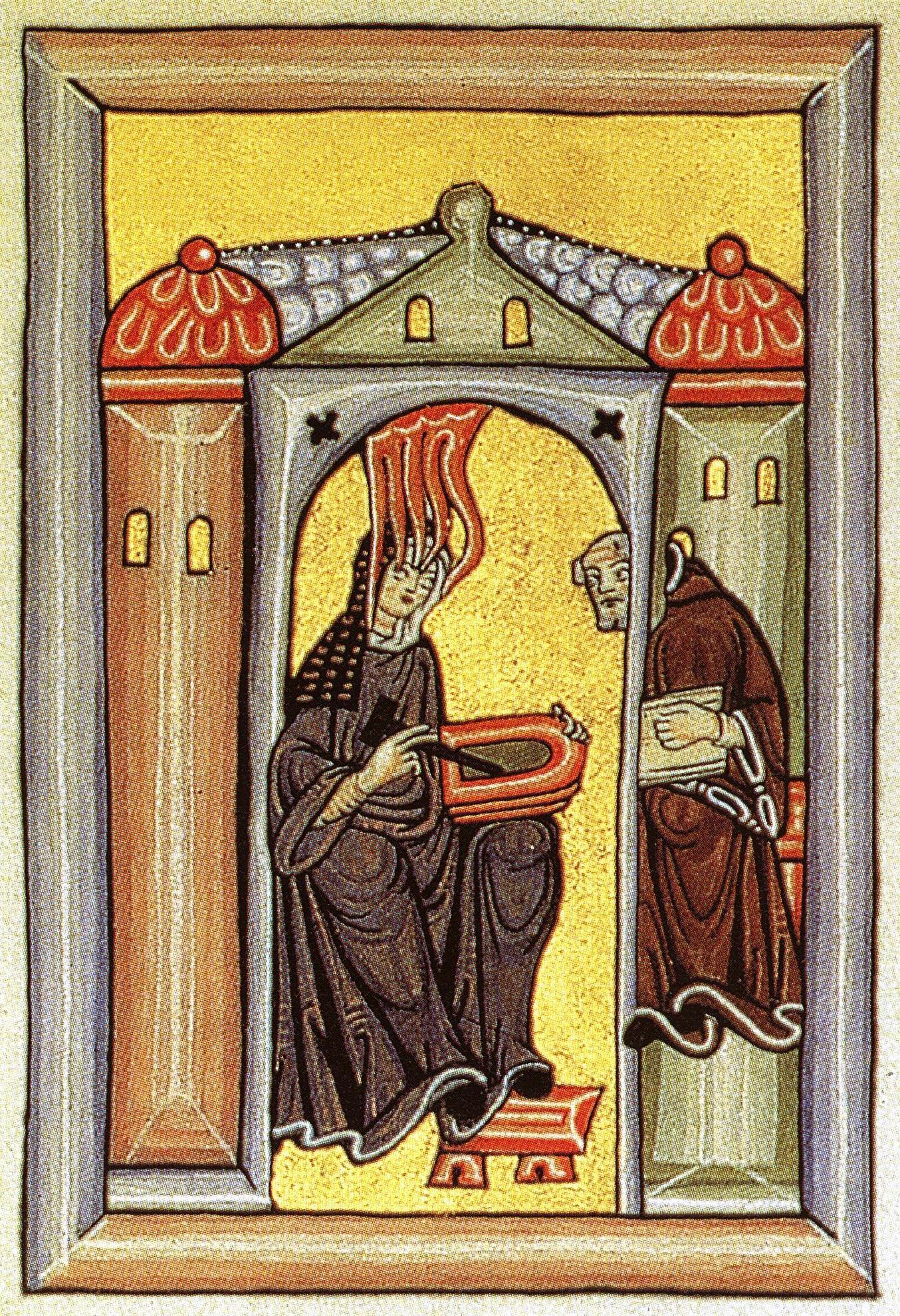
Hildegard von Bingen was a polymath (a person who knows a lot of things about many different subjects) and wrote poems, music, and texts about Christianity and theology, medicine, and science.
It’s theorized that perhaps she suffered from migraines which caused her to have “visions” and sudden religious insights, which she shared with her church colleagues and turned into music.
Bingen’s modern popularity rose in the 70s when Philip Pickett and the New London Consort first performed four of her songs in English (until then, they had been only in Latin). A few years later in 1983, Emma Kirkby and Gothic Voices released an album called “A Feather on the Breath of God” which became a surprise best-seller, propelling the public’s interest in Bingen’s ancient sentiments. The CD sold 260,000 copies, making it the eleventh-biggest-selling classical CD of all time.
Isn’t it remarkable that a woman who lived and died 900 years ago still captivates the imagination and interest of people in the modern age, though we’ve never heard her voice even once?
Johann Bach (1685-1750)
Of course, you can’t talk about classical music without mentioning timeless classical artists, like Bach.
The Baroque period (around 1600-1750) was a time of incredible new developments in music, like the concerto, the sonata, and the opera. Before that time, music was almost exclusively religious (thanks to the strictness of the church) and relied heavily on voices rather than instruments. Writing music for more than one instrument at a time and having them play their individual parts at once was revolutionary, as was using music to convey emotion other than religious reverence.
Bach was a revolutionary composer in a revolutionary time. He wrote music meant to be performed by dozens of instruments and/or singers at once and in ways that pushed the boundaries of music as it was known at the time.
Wolfgang Amadeus Mozart (1756-1791)
Another composer and musician who cannot be left out is the child prodigy, Mozart. Just after the Baroque period came the Classical period (around 1750-1830) which coincided with the Age of Enlightenment, and this is the realm in which Mozart flourished. It’s also where the term “Classical Music” comes from.
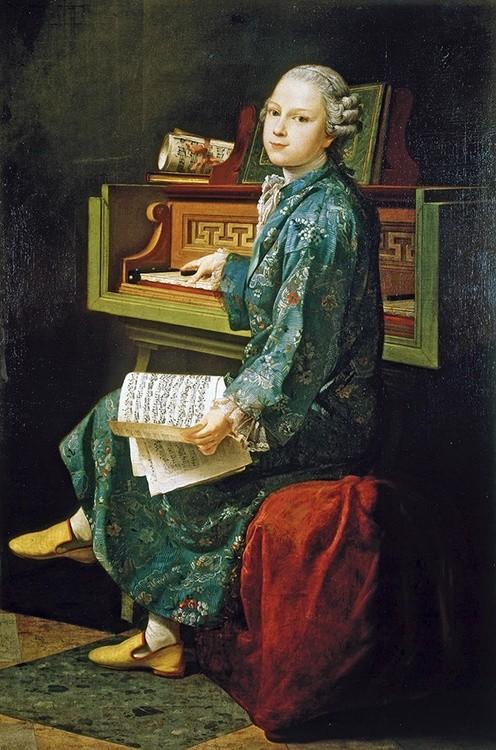
Wind instruments joined the ranks in orchestras, which up to that point had been mostly string instruments and the organ or harpsichord. The string quartet was invented, the piano became popular, and the symphony was born.
Mozart wrote 41 symphonies, numerous concertos, and revolutionary Italian operas in his short life. Imagine what more he would have done had he lived longer than just 35 years!
His works were adored by audiences at the time and have been timelessly loved through the ages. This classical artist also set the stage for the composers who worked during and just after his time, allowing them to dream bigger than composers who came before.
Ludwig van Beethoven (1770-1827)
One of the composers who was set up for success by Mozart was Beethoven. Influenced by Mozart’s work, Beethoven quickly mastered orchestral music to the point where he changed it and set the Romantic Period in motion.
The Romantic Period (around 1830-1900) is characterized by the intense emotions conveyed in the music. Remember that only about 100 years prior, western music was generally mellow and meant mostly as a form of worship to the Christian god. In the Romantic Period, composers and musicians were able to let loose and show an incredible amount of passion both in their compositions and performances, and the audience was able to experience a wide variety of emotions while listening, enraptured, to this orchestral phenomenon. Also, remember that the gramophone was only invented in 1887, so people were not overly inundated with music and other sounds daily the way we are today; seeing a concert performance in this time period would have been life-altering.
Beethoven’s work was able to portray complex inner emotions in a way no other composer had done before. His music still elicits smiles, tears, tension, and elation in those who listen.
Camille Saint-Saëns (1835-1921)
Saint-Saëns also operated mostly in the Romantic Period, so his work is also characterized by an immense portrayal of emotions.
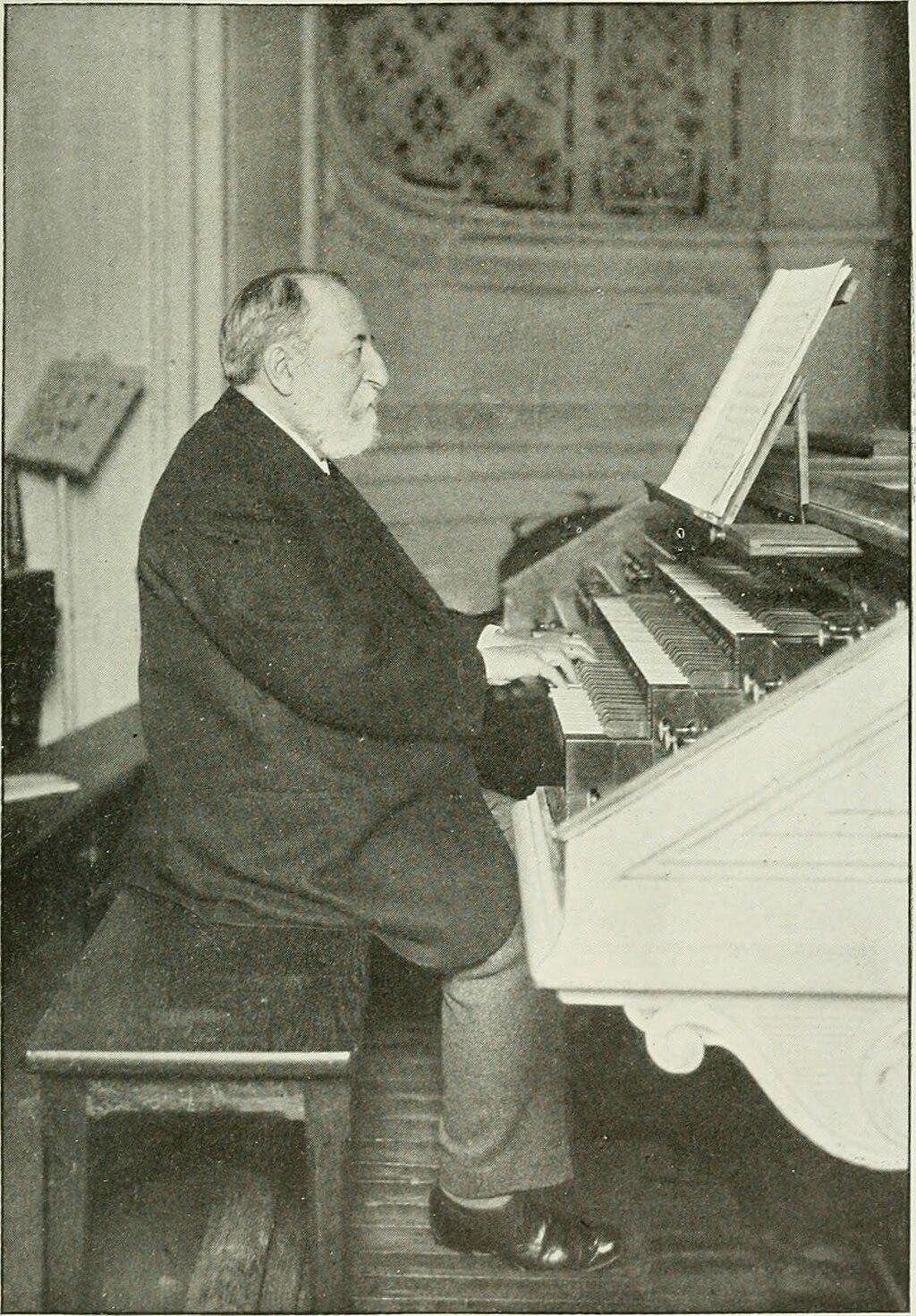
What makes his work unique, however, is that Saint-Saëns was also a virtuoso; his compositions were meant to show off immense technical skill and talent. He was also incredibly intelligent and would learn about things like archaeology, astronomy, literature, the arts, other instruments, and languages in his spare time.
As one of the most famous classical musicians, it’s a crime to sum up Saint-Saëns’ career with just one work, but most people know “Danse Macabre,” which is his most well-known and immortal composition.

Pyotr Ilyich Tchaikovsky (1840-1893)
A prolific composer, Tchaikovsky wrote 169 finished pieces of work in his lifetime, many of which have remained extremely popular” ballets like “Swan Lake,” “The Nutcracker,” and “Sleeping Beauty.” Notably, his “1812 Overture,” is used in a lot of pop culture like the film “V for Vendetta,” as the entrance theme for AEW pro wrestler Claudio Castagnoli, and as a playable sea shanty in the Xbox One game Sea of Thieves.
Claude Debussy (1862-1918)
Debussy was an Impressionist Era master. Impressionist music differs from Romantic music because it creates more of a smattering of emotions or a scene rather than a story with a beginning, middle, and resolved ending.
Debussy’s works were more abstract than the ones that came before, allowing for more imagination and contemplation on the audience’s part. He called his music “symphonic sketches” with the intention of presenting a musical work of art the way a painting presents a single scene; there is more than meets the eye (or ear) at first glance, the viewer can be lead around the composition by guiding themes and “colors,” and everyone might have their favorite part.
His works like Prélude à l'après-midi d'un faune, Nocturne, and Clair de Lune remain some of his most well-known works, and he influenced many musicians after him including jazz musician Bill Evans.
Amy Beach (1867-1944)
New Hampshire native Amy Beach deserves to be more celebrated; in 1896, she was the first American woman to publish a symphony, “Gaelic Symphony.” She was born a musical virtuoso, reportedly being able to sing 40 different songs by age 1 and being able to harmonize with her mother’s lullabies by age 2. Had she been born a man, she likely would have been sent to Europe to learn music with the masters at an early age.
Instead, she learned with local musicians and was even able to compose music in her head without the use of a piano. She was playing Beethoven by age 7 and made her debut in Boston’s Music Hall at age 16, which was a resounding success. Unfortunately, when Amy married at age 18, she was limited to performing only twice per year and had to give up playing the piano, settling for composing only as was fitting for an upper-middle-class wife at the time.
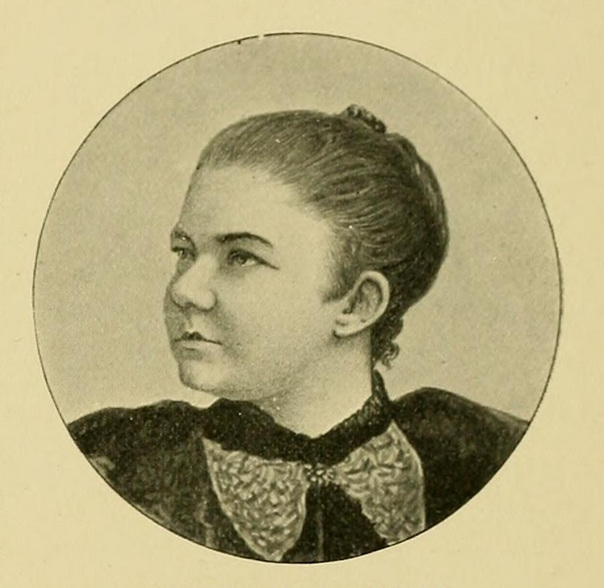
After her husband’s death, she finally went to Europe and she picked up where she left off in her musical studies. She returned to America in 1914 and gave piano lessons and helped to encourage more women to compose and perform music.
While Beach’s music isn’t as widely celebrated as other composers, she remains a pivotal figure among famous modern composers for her contributions in composing as well as her helping to break down barriers for women to enter the musical realm.
Vaughan Williams (1872-1958)
Williams was an incredibly important figure among modern classical composers. Dissatisfied with German-influenced contemporary musical works, he decided to embrace local English traditions. Inspired by Tudor and Stuart music and English folksongs, Williams’ began collecting and studying regional English folksongs and poems for his own compositions.
His somewhat tumultuous life sometimes prevented him from composing, and he didn’t hit his stride as a composer until his 30s. Still, he wrote several famous symphonies and other works that introduced a new type of sound to classical music at the time.
One of his most famous works, “The Lark Ascending,” is a great example of the type of nature-inspired, light and airy, optimistic and free-sounding music he sought in the face of heavy German-influenced music of the time.
This unique piece is based on an 1881 poem by George Meredith. Williams used the imagery and onomatopoeia of the poem to inform his musical piece, making it an interesting cross-media work that has survived over time and was even voted number one in the Classic FM annual "Hall of Fame" listener poll for 2007-2010 and 2014-2017.
He rises and begins to round,
George Meredith
He drops the silver chain of sound
Of many links without a break,
In chirrup, whistle, slur and shake.
For singing till his heaven fills,
'Tis love of earth that he instils,
And ever winging up and up,
Our valley is his golden cup
And he the wine which overflows
to lift us with him as he goes.
Till lost on his aerial rings
In light, and then the fancy sings.
Wynton Marsalis (1961 - Present)
Classical music is still alive and well, even though it may not be the most popular form of music in the general public. New musicians inspired by this style of musical artistry continue to learn the ways of their predecessors and make their own compositions.
One such musician is Marsalis, one of the most prolific American composers who works in both jazz and classical. In 1983, he was awarded a Grammy Award in both the jazz and classical categories; a first and only achievement for any musician!
While Marsalis works mostly in jazz, his contributions to classical cannot be overlooked, especially as a contemporary artist. He is one of the most famous composers today, being a world-renowned performer. He is currently the Managing and Artistic Director of Jazz at Lincoln Center, the Director of Jazz Studies at The Juilliard School, and President of the Louis Armstrong Educational Foundation.
Take the opportunity to enroll in singing lessons for adults to refine your vocal skills and explore your passion for music. With experienced instructors providing personalized guidance and a nurturing environment, you'll enhance your technique, expand your vocal range, and build the confidence to perform with ease. Whether you're a beginner or an experienced singer, these lessons will help you achieve your musical aspirations.
Contemporary Up-and-Coming Classical Musicians to Know
Want to listen to other contemporary classical composers’ interpretations of this timeless genre? Check out new classical music by these newcomers to keep in touch with the direction classical music is heading in the modern age.
- Bruce Liu
- Klaus Mäkelä
- Leia Zhu
- Theo Plath
Classical music has been greatly influenced by these important musicians over the years. Their lasting impacts continue to inspire and shape music even in the modern day, as classical music is a strong foundation for many other musicians regardless of their genre.
Summarize with AI:

